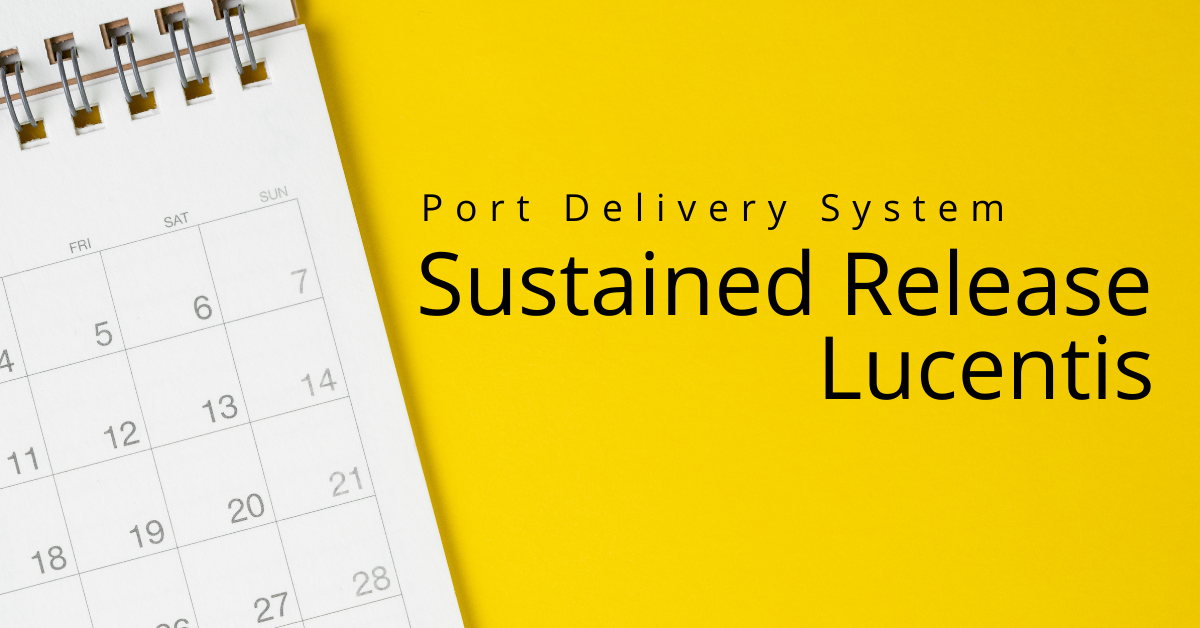Roche Pharmaceutical is testing the Port Delivery System (PDS), a system which may reduce treatment burden by reducing the number of injections of Lucentis used to treat wet macular degeneration.
Ranibizumab (Lucentis) is a valuable FDA approved tool for the retina specialist to treat wet macular degeneration, diabetic macular edema, diabaetic retinopathy, retinal vein occlusions and myopic choroidal neovascularization (mCNV).
Ranibuzumab is an anti-VEGF medication that is delivered only by intravitreal injection. Injections often need to be repeated at least monthly for an indefinite period.
Treatment Burden
Scheduling repeated medical appointments for these injections can be a burden to many patients. The injections might be uncomfortable (usually not), may require scheduling a companion for transportation and possible complications are possible with each injection.
The Port Delivery System has been designed to address the issues of treatment burden to include extending time in between treatments, I.e. fewer injections and scheduled appointments.
How it works
Initially, a tiny reservoir, about the size of a grain of rice, is surgically fixated to an area inside the eye called the pars plana. The reservoir serves as a refillable source of ranibizumab (Lucentis) and will release the drug slowly over several months. When empty, the reservoir can be refilled without its removal. The technique will require a special needle and can be completed in the office. It does not require actual surgery.
Port Delivery System
The system is under FDA investigation (Archway phase 3 clinical trial) and is not approved for clinical use. Most recently, early Phase 3 data from the Archway study indicate the Port Delivery System is comparable in effect to patients receiving monthly intravitreal injections of ranbizumab (Lucentis). The Port Delivery System is refilled every 24 weeks.
Sustained release and slow-release systems may solve the treatment burden for patients requiring repeated injections of anti-VEGF medications such as Lucentis. In addition, investigations are ongoing to find drugs that have an extended treatment period, sustained release medications all to reduce treatment burden, but achieve comparable or superior results.
If you would like to schedule an appointment, please call us (877) 245.2020.
